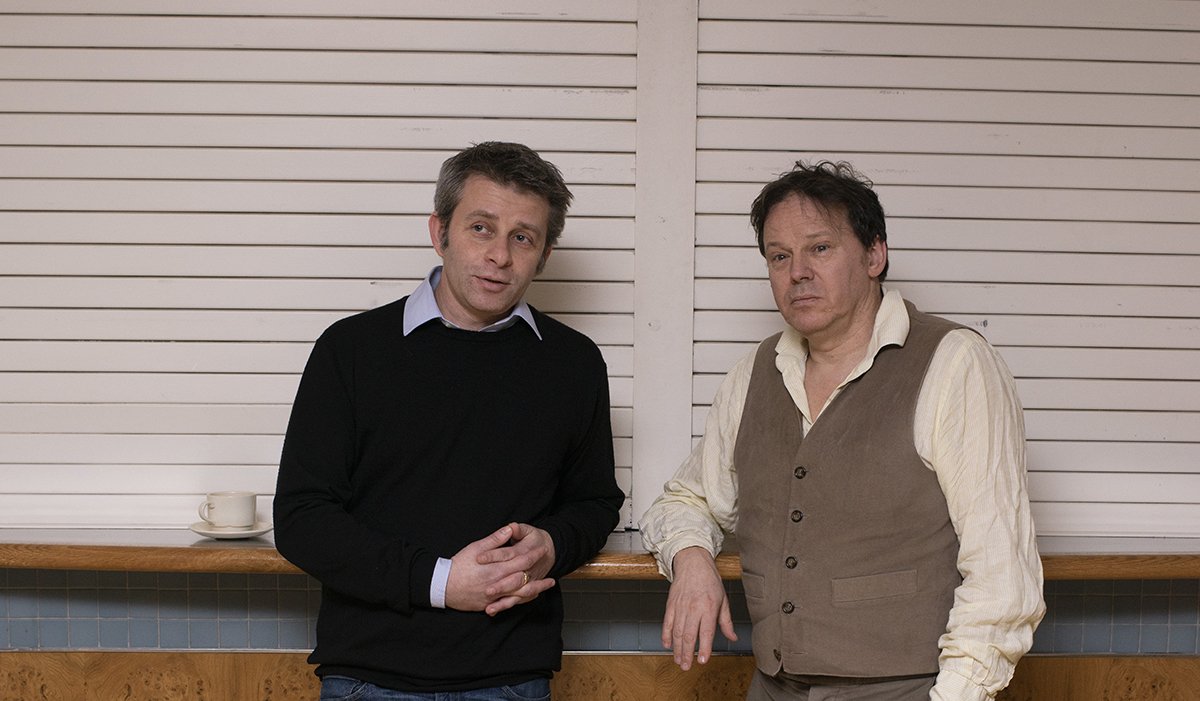Others’ Opinions…
some curious, some closed
some institutional, some independent
some clearly read the book, others did not
Across the internet we are finding a growing number of reports of people who have published formal opinions on The Dawn of Everything. As these opinions are published, we know some will be by people who are paid to have opinions by institutions unrelated to us - the professional opinionators. Others will be by people who write to use polemics to further their own name - the freelance influencers. Finally, others will be by people who write out of sincere interest and curiosity - the curious explorers. You may decide which are which.
-

Chastening the Past
A constructive critique of the Dawn of Everything that takes its arguments even further by looking deeper at indigenous critiques of European conceptions of gender and marriage.
-

Anthropologies Beyond the Human
Another fascinating critique of the Dawn of Everything that asks what if it included non-humans in its critique as many indigenous cultures around the world would have done.
-

David Graeber’s Possible Worlds
A deep dive into David Graeber’s biography and the genesis of the Dawn of Everything. In NY Mag
Image: David Graeber, summer 1977
-

A Bigger Picture Gives Our Ancestors Their Full Humanity
“[In the book] Readers are invited to weigh starkly unfamiliar societal arrangements against our own, and to feel the sting.” - Yes! Magazine
Illustration by Frances Murphy
-

Possible Worlds: The Broad Thinking Of David Graeber & David Wengrow
A touching and unique review, reflecting on Human Nature, contemporary bias, bureaucracy, what David Graeber represented and more.
-

On First Looking into The Dawn of Everything
Towards a new understanding of Ancient Rome with Christopher Smith, Professor of Ancient History at the University of St Andrews
-

The Black Radical Tradition in The Dawn of Everything
A review connecting the book and abolitionist movements.
“Black experience provides the raw material for constructing this other world” In Black Perspectives
Image: Mural, Brownsville Houses, 284 Sutter Ave., Brooklyn, NY, 2013 (Courtesy of the Library of Congress)
-

Imagination at the Center of Humanity`s Journey
“Many books can be defined as a must-read. The Dawn of Everything goes beyond that and will reshape how we identify” - Steve Rushton at Occupy News
-

It Didn’t Have to Be This Way
An in-depth review that is both very moving and also gets right to the heart of the matter about what this book is truly about. In The Atlantic
Illustration by Rodrigo Corral. Sources: Hugh Sitton / Getty; Been There YB / Shutterstock
-

The Radical Promise of Human History
Detailed wide-ranging review that appreciates both the content and intent of the book. It also refutes one of the negative claims made by The Nation review by fully reading the source material. In Boston Review
Image: A map of Tlaxcala, an indigenous city-state of pre-Columbian Mexico ruled by council instead of by kings. (Wikimedia)
-

Early Civilizations Had It All Figured Out
Another deep dive into the contents and arguments of the book. Worth a read. In The New Yorker
-

DoE may well prove to be the Most Important Book of the Decade
A review by Professor of Anthropology James H. McDonald. In New York Journal of Books
-

The Roots of Inequality: An Exchange
An exchange between Kwame Anthony Appiah and David Wengrow. In The New York Review of Books
-

Exploding myths of prehistory
“Inspired by the rediscovery of an unknown past, can humanity imagine a future that’s more worthy of itself? Read this extraordinary book and make up your own mind.” A brief review in The Hindu.
-

New views on ancient peoples
“The Dawn of Everything is a rabble-rouser - a great book that will stimulate discussions, change minds, and drive new lines of research.” - Science
-

The Dawn of Everything by David Graeber and David Wengrow review – inequality is not the price of civilisation
“Book of the Day” review emphasizing the authors’ thorough myth-busting in the book. In The Guardian
Image: Rex/Shutterstock
-

New book 'Dawn of Everything' upends assumptions about how societies develop
“If the Wendat can manage without police, then so can we. And if people in the past could choose more egalitarian social structures, why shouldn’t we be able to do that as well? The fact that there was no one beginning of humanity means there is no one endpoint. The dawn of everything is always now.” - NBC News
Image: A herdsman stands with cattle brought for inspection as seen on a fragment of a wall painting from the tomb of Nebamun in Thebes, Egypt, c.1350 B.C. CM Dixon/Print Collector / Getty Images
-

The Late David Graeber’s Final Contribution to Civilization
A thoughtful analysis of the book that uses the The Guardian review as its starting point. The review emphasizes the experimentation, imagination, and playfulness of the book itself and the societies throughout history that the book examines. It then contrasts that with how those same traits are ostensibly celebrated in our society by the same people who actively work to constrain and silo them. In Fair Observer
Image: Nataliia Yankovets / Shutterstock
-

After 200,000 years, we’re still trying to figure out what humanity is all about
“The more we learn about the many paths our ancestors have taken, the more possible futures open up. “The Dawn of Everything” begins as a sharp rejoinder to sloppy cultural analysis and ends as a paean to freedoms that most of us never realized were available. Knowing that there were other ways to live, Graeber and Wengrow conclude, allows us to rethink what we might yet become.” - The Washington Post
Image: A portion of Indian Mounds Regional Park in St. Paul, Minn. (Carol M. Highsmith/ Library of Congress, Prints and Photographs Division)
-

David Graeber’s Final Challenge
A broad overview of the book that places it at the same caliber as that of works by Galileo and Darwin. In Tribune Magazine
-

Thinkers - Showing how alternatives of social and economic organisation have been a deep part of our ancestry all along
Earning a rank of 10 in Art Review’s Power 100 Rankings for 2021, they claim: “No recent book is gaining faster traction in the artworld right now.”
-

‘The Dawn of Everything’ rewrites 40,000 years of human history
“Social evolution, from Ice Age hunter-gatherer networks to ancient Egypt’s pyramid-building dynasties and beyond, gets reinterpreted in a new book as a series of flexible systems that didn’t inevitably produce rampant inequality.” - Science News
Image: Osama Elsayed/Unsplash
-

Los albores de todo: la imaginación política es (también) despabilarnos del pasado
A review in Spanish by Argentine Anthropologist Julieta Gaztañaga.
-

Is the Doom of Humanity Really Inevitable? Maybe Not.
“What passes for civilization today is frequently a system of dominance and deprivation for most people, and one that would have repelled many of our ancestors.” In Institute for New Economic Thinking
-

The Twilight of Mainstream Historical Narratives
“Contradicting the famous capitalistic slogan ‘There is no alternative’, archaeology proves that yes, indeed there were—and there are.” In Ancillary Review of Books
-

Making Room for Happenstance
“To the extent that the book is difficult, it is the difficulty that is inseparable from richness. Sentence by sentence, it is clear and forceful and funny, memorable in the manner of a lecture by the kind of professor whose students know they are lucky.” This review also dives into the theological and moral implications of the book. In Commonweal Magazine
Image: Ancient carving of a standing figure from Göbekli Tepe (Robert Landau/Alamy Stock Photo)
-

A New History of Humanity Offers Hope for a New Future
A bullet point style review.
Illustration: Rae Cook/Axios
-

The Dawn of Everything rewrites history so we can reimagine the future
A positive review that appreciates this aspect of the book: “Critics might suggest The Dawn of Everything is all over the place. But that is the point. History is all over the place. “ By Bella Caledonia
-

The Dawn of Everything: A New History of Humanity by David Graeber and David Wengrow review — how Sapiens got it wrong
Emphasizing the empirical evidence that the book is based on… and the lack of evidence in books by Noah Harari, Steven Pinker, and Jared Diamond. In The TimesImage: cave paintings in South Africa ALAMY
-

Deep History, Ancient Wisdom, and Modern Planning
Review by an anthropologist and director of Urban Studies program, who has written about “early cities that lacked top-down governance structures” and “new imaginaries: alternative cognitive images of the city to come.” In Planetizen
Image: Teotihuacán with the modern city of San Juan Teotihuacán in the background. | Gianfranco Vivi / Shutterstock
-

The Hopeful Message of ‘The Dawn of Everything’
“…the authors make their key point irrefutably. We’ve walked away from bad societies for tens of thousands of years, or just said no, and then built better societies after long debate. We can do it again.” - Author Crawford Kilian in The Tyee
Image: Wikimedia.
-

Everything we “know” about the rise of Man is wrong
Excerpt: David Wengrow spent ten years working with Graeber on this book. They clearly had too much fun. The research is, as I hope I’ve transmitted, phenomenal. I have not read any of his other books (mostly on archaeology), but this book is so well done, he is now on my list going forward. In The Straight Dope
-

What if Everything You Learned About Human History Is Wrong?
A review that talks a lot about other people’s opinions than the actual contents of the book. In The New York Times
Image: Pier Marco Tacca/Getty Images
-

Beyond the State: David Graeber and David Wengrow’s anarchist history of humanity.
Is it an anarchist history? The term “anarchism” came into common use for a political philosophy in the 19th century. This book goes much farther back. Is it anachronistic to call pre-colonial Tlaxcala anarchist? Maybe modern anarchists are should be called “tlaxcalists”? Or maybe “anarchism” is merely a retronym for what was once commonplace? In The Nation
Illustration by Tim Robinson.
-

How fear makes us human
In which the reviewer confuses a critique of deterministic approaches to history with an appreciation for certain freedoms that have existing in history, then laments on how Thomas Hobbes is shortchanged in the book, and then finally implies that the authors somehow simultaneous espouse anarchist and neoliberal views. An impressive feat by the authors if true considering those are two diametrically opposed philosophies. In The New Statesman
Image: Illustration by Golden Cosmos